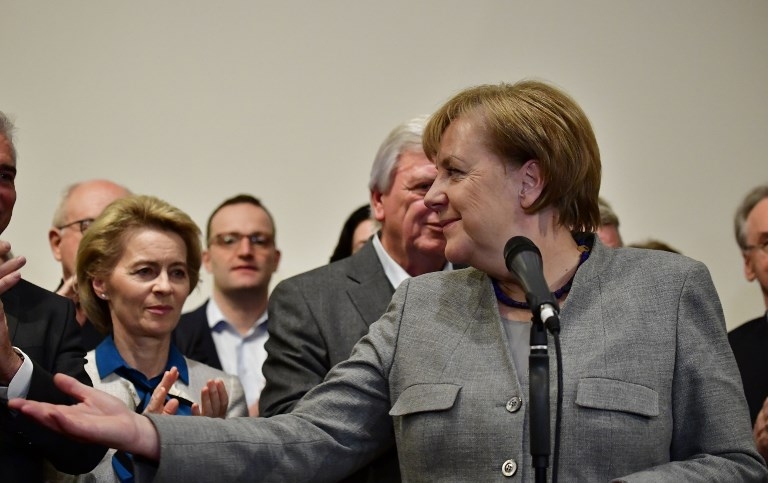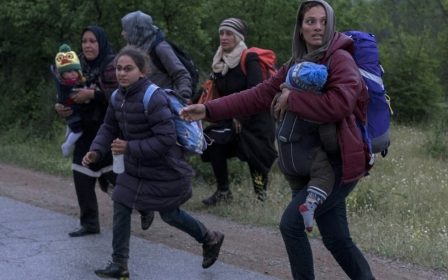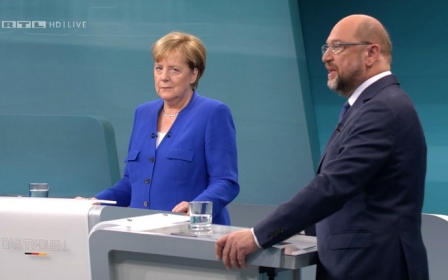Immigration policy may snag Merkel's fourth term as coalition partner pulls out

German Chancellor Angela Merkel's efforts to form a three-way coalition government that would secure her a fourth term hit a major setback on Sunday after a would-be coalition partner pulled out of exploratory talks, citing irreconcilable differences.
The talks, which turned increasingly acrimonious, stumbled on issues including the divisive matter of immigration.
Merkel was weakened after an election in September as voters angry with her decision in 2015 to open Germany's borders to more than a million asylum seekers punished her conservatives by voting for the Alternative for Germany (AfD) far-right party.
The pro-business Free Democrats (FDP) unexpectedly walked out of the talks with Merkel's conservatives and the Greens, saying that the three parties could not find compromises on key issues.
Merkel's Christian Democrats (CDU) had reached a deal on migrant policy with her conservative Bavarian allies the Christian Social Union (CSU) in October, agreeing to put a number on how many people Germany would accept per year on humanitarian grounds, namely a net total of around 200,000 individuals, but the FDP would not get on board.
Merkel could seek to form a minority government with the Greens, or new elections may be called.
Top-selling Bild daily said earlier on Sunday that a failure to forge a coalition puts "her chancellorship in danger".
A poll by Welt online also found that 61.4 percent of people surveyed said a collapse of talks would mean an end to Merkel as chancellor. Only 31.5 percent thought otherwise.
Little appetite for second vote
"Today there was no progress but rather there were setbacks because targeted compromises were questioned," FDP leader Christian Lindner told reporters. "It is better not to rule than to rule falsely. Goodbye!"
There is little appetite for a second vote, especially as the main parties fear that the populist AfD would win more than the almost 13 percent of votes it secured in September.
Failure to form a government in Europe's largest economy may have implications for everything from euro zone reforms to European Union policy on Russia and Turkey.
Merkel has used her power to broker compromises on Greece within the single currency bloc and to keep in place EU sanctions against Russia over its backing of separatists in eastern Ukraine.
New MEE newsletter: Jerusalem Dispatch
Sign up to get the latest insights and analysis on Israel-Palestine, alongside Turkey Unpacked and other MEE newsletters
Middle East Eye delivers independent and unrivalled coverage and analysis of the Middle East, North Africa and beyond. To learn more about republishing this content and the associated fees, please fill out this form. More about MEE can be found here.




